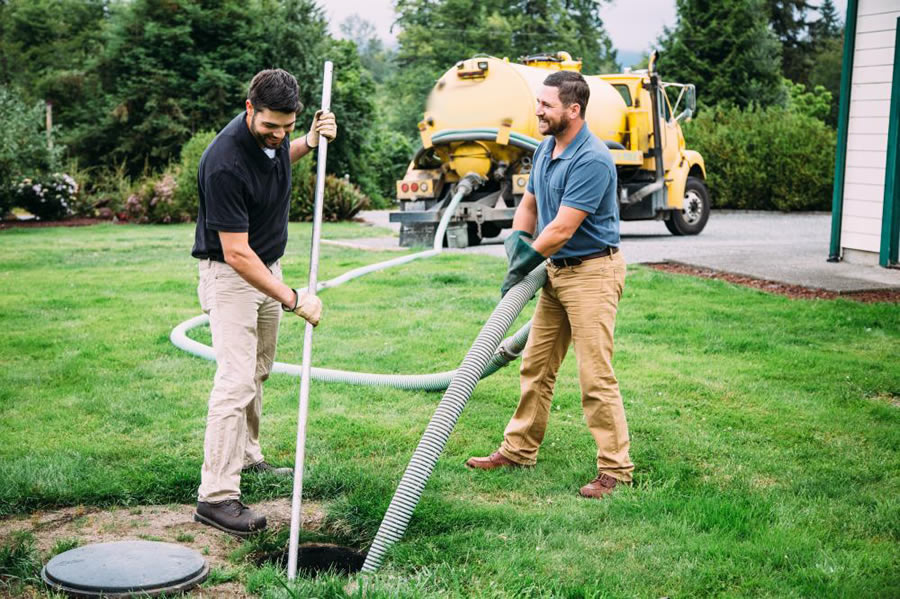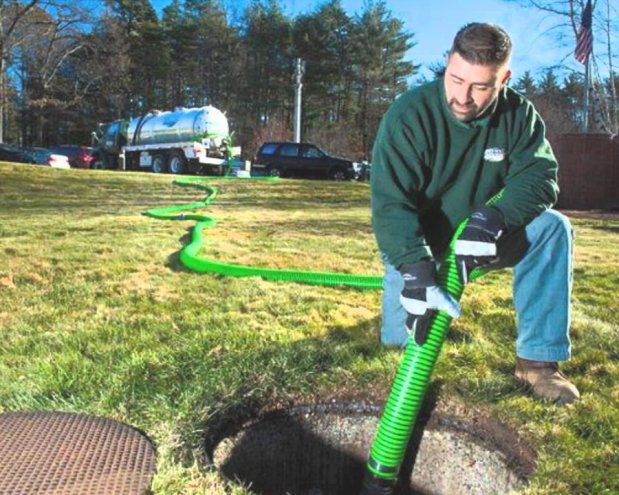
22
Your septic system is more than just a hidden part of your home’s infrastructure—it's a vital component in protecting the environment around you. When maintained properly, a septic system can safely treat and dispose of household wastewater without harming local ecosystems. However, neglecting regular maintenance like septic tank pumping or septic tank cleaning can lead to serious environmental problems.
A septic system is a self-contained, underground wastewater treatment setup commonly used in rural and suburban areas without access to a centralized sewer system. It typically includes a septic tank and a drain field. Wastewater flows from your home into the tank, where solids settle at the bottom, scum floats to the top, and clarified water exits to the drain field for further treatment.
Over time, solids build up in the tank. Without routine septic tank pumping, these solids can overflow into the drain field, leading to clogs, backups, and groundwater contamination. That’s why regular maintenance isn't just good for your plumbing—it's essential for environmental protection.
One of the most significant environmental benefits of maintaining your septic system is the protection of groundwater. When a system is poorly maintained, untreated or partially treated sewage can seep into the soil and reach nearby wells, streams, or aquifers. This contaminated water may carry harmful bacteria, viruses, and chemicals that pose health risks to humans and wildlife.
Regular septic tank cleaning helps ensure that only properly treated wastewater enters the environment. This protects groundwater sources that many communities rely on for drinking water.
Failing septic systems can leak nutrients like nitrogen and phosphorus into nearby water bodies. These nutrients fuel the growth of algae, resulting in harmful algal blooms. Algae blooms deplete oxygen in the water, killing fish and other aquatic life, and sometimes release toxins harmful to both humans and animals.
By staying on top of maintenance—especially regular septic tank pumping in Rock Hill, NC—you help prevent these pollutants from reaching lakes, rivers, and wetlands. This keeps local water ecosystems healthier and more balanced.
Your drain field plays a crucial role in filtering wastewater before it returns to the environment. But when solids from an overflowing tank clog the field, untreated waste can surface in your yard. Not only does this create unpleasant odors and a soggy lawn, but it can also damage the surrounding soil and vegetation.
Proper septic tank cleaning and care help ensure the drain field operates efficiently, protecting your landscape from contamination and preserving the natural soil composition.
A well-functioning septic system is a sustainable way to treat household wastewater. Unlike centralized sewage treatment plants, which require energy and extensive infrastructure, septic systems work naturally using gravity and soil filtration. When installed and maintained correctly, a septic tank installation has a lower environmental footprint and can last for decades.
Homeowners who prioritize septic system care are effectively contributing to more sustainable, low-impact living. This makes proper maintenance an eco-friendly choice as well as a practical one.
To keep your system working properly and protect the environment, the EPA recommends having your septic tank inspected every 1 to 3 years and pumped as needed—typically every 3 to 5 years, depending on household size and usage. Partnering with a professional at Charlotte Septic Pros for septic tank pumping and cleaning ensures that your system is functioning efficiently and not putting your property or the environment at risk.
Whether you’re maintaining an existing system or considering a septic tank installation, responsible care helps preserve water quality, protect local wildlife, and promote a healthier environment. In the end, taking care of your septic system is more than just good home maintenance—it’s a commitment to protecting the planet.

12
A single slow drain in your home can feel like a minor inconvenience. Maybe the sink takes a little longer…
Read more
05
Are Slow Drains a Septic Issue or Just a Clog? Slow drains are one of those household problems that start…
Read more
02
What Septic Service Techs See That Homeowners Miss Most homeowners only think about their septic system when something goes wrong.…
Read more
21
Simple Habits That Protect Your Septic System A well-functioning septic system does its job quietly, but the moment something goes…
Read more
14
Pump Now or Pay Later: The Real Cost of Skipping Maintenance A properly functioning septic system is easy to forget…
Read more
11
Why Your Septic System Always Acts Up at the Worst Time Homeowners often feel that septic problems strike at the…
Read more
04
Early Warning Signs Your Septic Tank Needs Pumping For homeowners who rely on a septic system, routine maintenance is not…
Read more
29
Why Does My Septic System Smell Fine One Day and Terrible the Next? If you own a home with a…
Read more
19
Is Your Septic System Overdue? Simple Home Checks You Can Do Today For many homeowners, the septic system is a…
Read more
13
5 Signs Your Septic Tank Is Overdue for Pumping Your septic system works quietly behind the scenes, managing wastewater from…
Read more